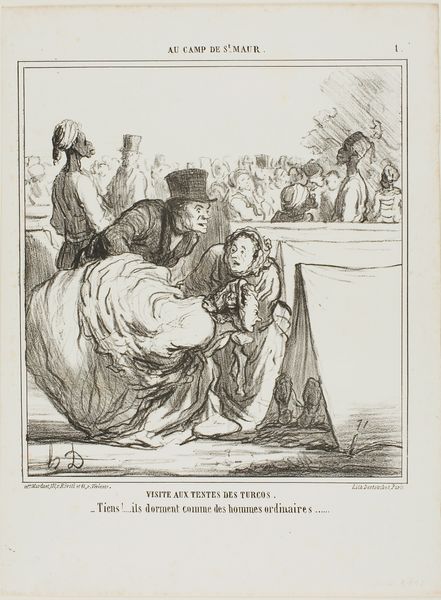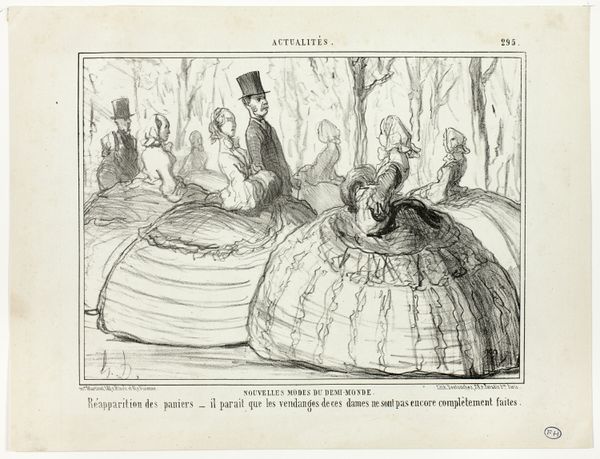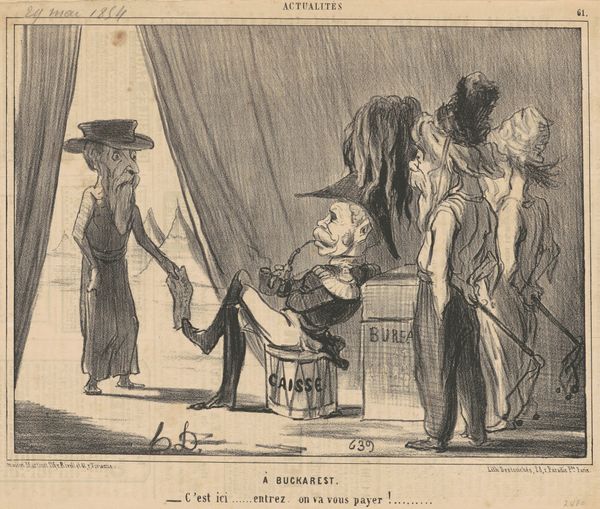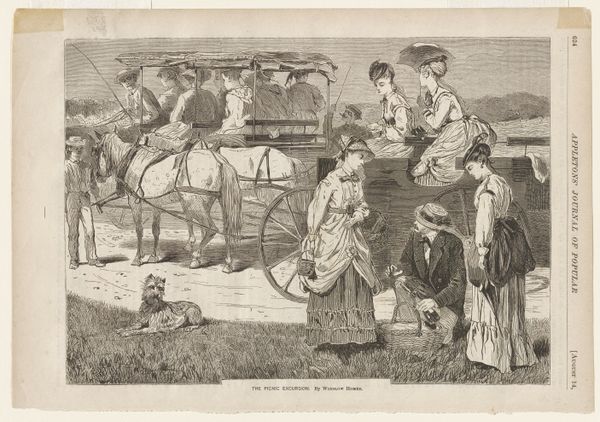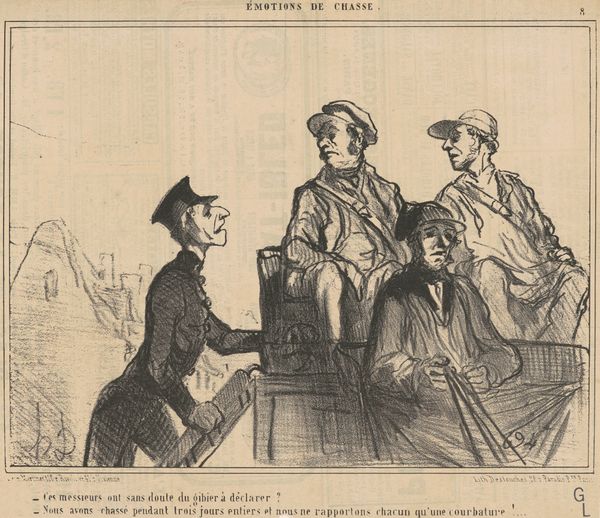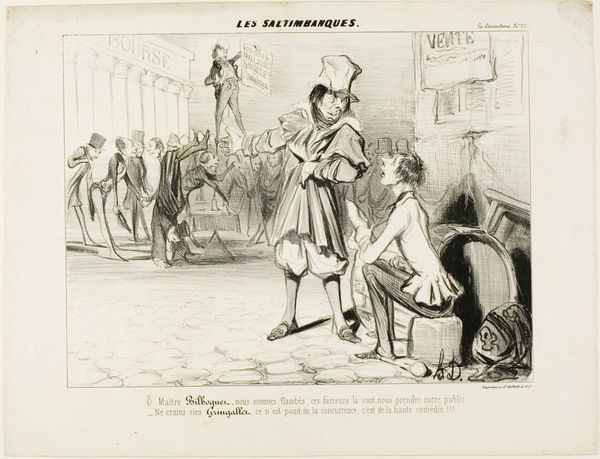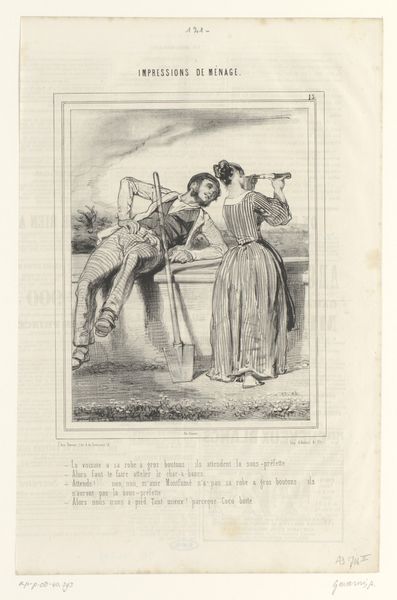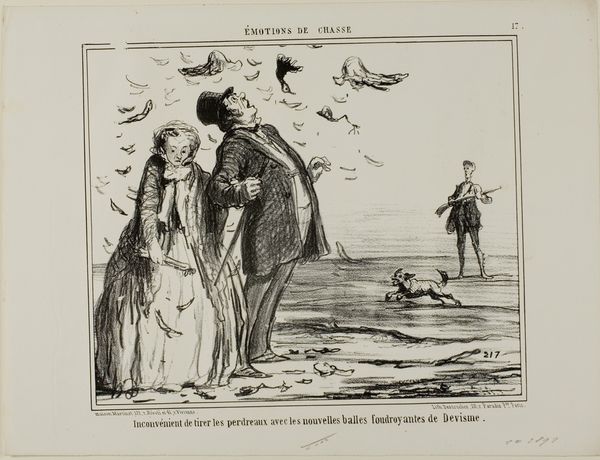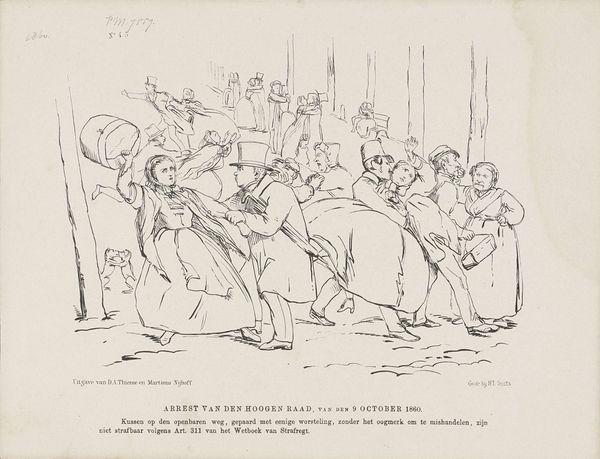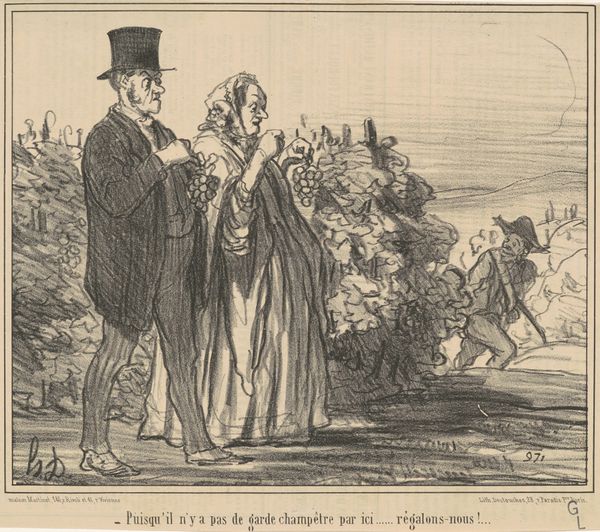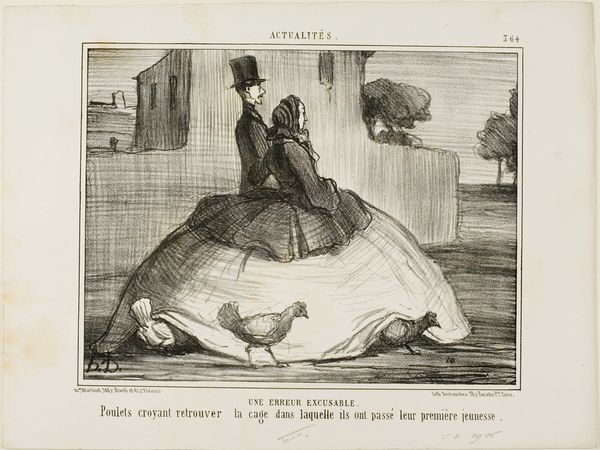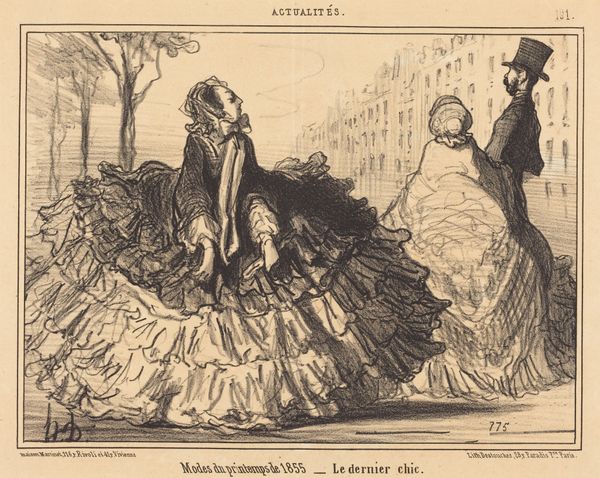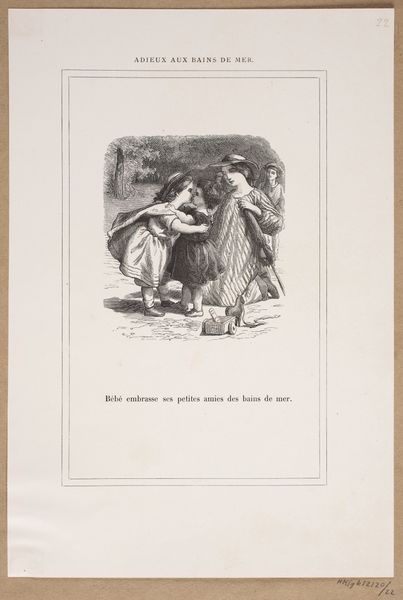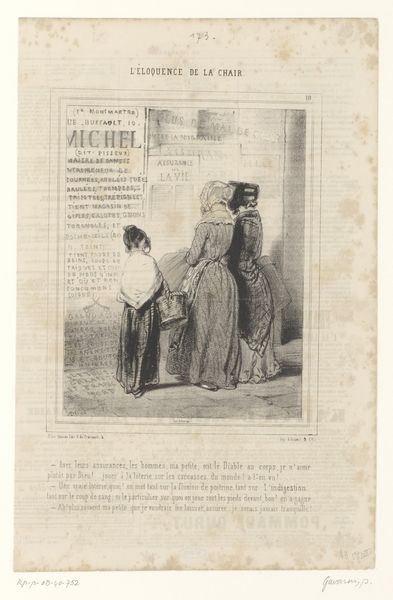
lithograph, print
#
lithograph
# print
#
figuration
#
romanticism
#
19th century
#
line
#
genre-painting
Dimensions: overall: 26.7 x 36.3 cm (10 1/2 x 14 5/16 in.)
Copyright: National Gallery of Art: CC0 1.0
This lithograph, "La Crinoline-Abri," was created by Charles Vernier in the 19th century. It's made with lithography, a printmaking process that relies on the flat surface of a stone or metal plate. Notice how the artist uses line and shading to depict the elaborate crinoline dresses that were fashionable at the time. The exaggerated form of the dresses isn't just a comment on fashion, it also hints at social issues. These dresses required significant resources to produce, and also, the lithograph process allowed for mass production of images, contributing to the culture of consumption. The scene also suggests a commentary on class and labor. While the wealthy family relaxes in their extravagant dresses, the worker playing the flute seems to be in their service. Vernier skillfully uses the materials and techniques of printmaking to offer social critique, reminding us that even seemingly frivolous objects like fashion can be tied to wider social issues.
Comments
No comments
Be the first to comment and join the conversation on the ultimate creative platform.
